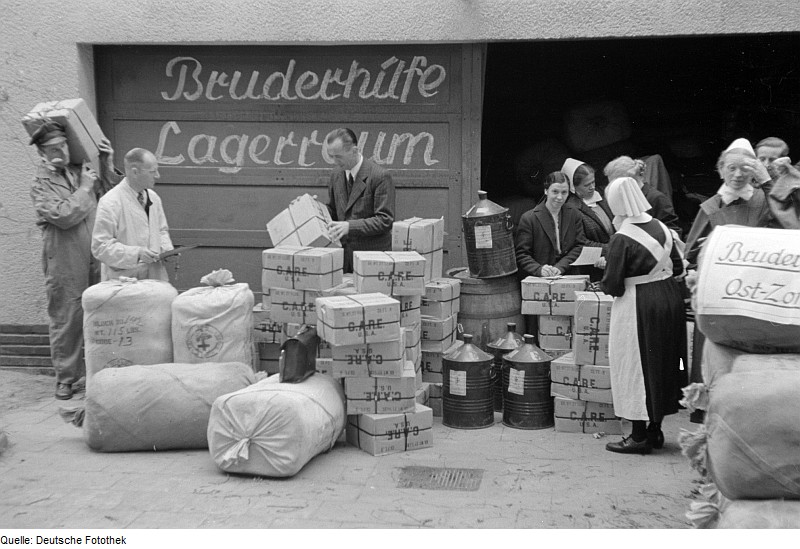Obama's Humanitarianism Stops at North Korea
In an administration full of active humanitarians, politics takes priority over helping starving North Koreans.
 The Obama administration prides itself on its commitment to humanitarianism and helping poor countries in desperate straits. Many of its senior officials and former officials have been active in focusing on humanitarian disasters over the years, including those in Bosnia, Sudan, Somalia and numerous others. And the administration indeed has been quick to deal with terrible humanitarian problems. But when it comes to North Korea’s serious food difficulties and requests for aid from our own humanitarian agencies, there are nervous coughs and continued silence. Even on the Hill, not noted for its silence, leading humanitarians have been quiet about providing food aid to the North, and many legislators actively oppose it. Starving children do not quite make the grade for this terrible state, which is responsible for this horror and deals with it abysmally. And why should Americans care if North Korea's relatives in South Korea don't seem to be overly concerned?
The Obama administration prides itself on its commitment to humanitarianism and helping poor countries in desperate straits. Many of its senior officials and former officials have been active in focusing on humanitarian disasters over the years, including those in Bosnia, Sudan, Somalia and numerous others. And the administration indeed has been quick to deal with terrible humanitarian problems. But when it comes to North Korea’s serious food difficulties and requests for aid from our own humanitarian agencies, there are nervous coughs and continued silence. Even on the Hill, not noted for its silence, leading humanitarians have been quiet about providing food aid to the North, and many legislators actively oppose it. Starving children do not quite make the grade for this terrible state, which is responsible for this horror and deals with it abysmally. And why should Americans care if North Korea's relatives in South Korea don't seem to be overly concerned?
Starting some seven months ago American NGOs with long experience in North Korea and great familiarity in monitoring food deliveries there requested sizable amounts of food aid for women and children in a number of provinces with serious food deficiencies. Last winter was one of the coldest in sixty-six years, and nearly half of all the country’s winter crops froze. Acute malnutrition among children was already evident in February, and the NGOs asked for food to be delivered before the end of June to stave off stunting and other disorders, if not deaths. Recently they were told that the government is "still assessing the situation.” Washington has never told the humanitarian agencies what additional materials they need for a decision, or whether the crisis is exaggerated or the monitoring still unsatisfactory. The U. S. failure to authorize food aid appears to have the effect of silencing many NGOs from speaking out on the American response to North Korea’s food problems.
The World Food Program, EU countries and even the Russians independently seem to know how to assess the situation more quickly than the Obama administration. Even so, the sizable amounts of food aid from these sources have fallen well short of stated needs. Worse yet, the stated requirements did not reflect the most recent catastrophe.
In late July, floods overwhelmed southern provinces of North Korea, washing away 600,000 hectares of the impoverished state’s “rice bowl.” On August 18, the State Department finally offered $900,000 in flood assistance, but specified that the aid package will not include any food. This decision was made before American NGOs delivering the first flood-assistance package had time to observe the situation in the targeted areas.
Washington is still holding out on food assistance. This remains the case after the Korean Council for Reconciliation and Cooperation, a South Korean NGO delivering food aid to North Korea, was to allowed to not only oversee distribution of foodstuffs to flood victims but also videotape the process in early August. Even the South Korean government has allowed some food to be sent to the North by charitable agencies.
The World Food Program (WFP) reported in September that cases of children being admitted to hospitals for malnutrition has substantially risen and estimated that a third of all children under the age of five are severely malnourished. On top of starvation, the lack of clean drinking water and other basic sanitation systems have led to widespread diarrhea and skin diseases. US-based NGOs reported that the daily rations for individuals in certain areas of the country have dropped as low as 150 grams of potato per person.
The WFP and US NGOs did not visit the same provinces that they had gone to in February. Naturally they went to areas that were most heavily affected by the floods. Therefore, it is difficult to create a complete picture of the country’s overall food situation. Certainly there are always uncertainties about the North Korean food deficit. But we are now a few days into October, and based on seven months’ worth of information provided by international observers and NGOs the U.S. government’s deliberations must have reached incredible depth. What must be concluded is that the American policy makers, for political reasons, simply do not want to provide food. Perhaps the beginning of serious discussions with North Korea on nuclear weapons issues and the reopening of six- party talks will unblock food deliveries. North Korea is no Somalia, but no one knows the impact of delay on the already declining health of many women and children.
Abramowitz, a senior fellow at The Century Foundation, was a former assistant secretary of state for intelligence and research.
Image: Deutsche Fotothek
